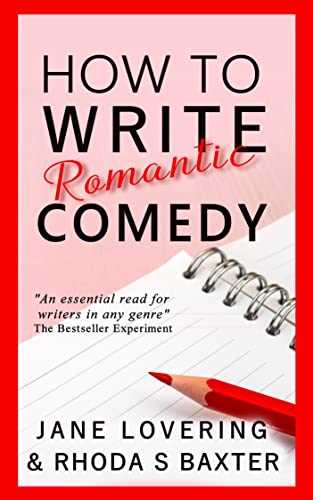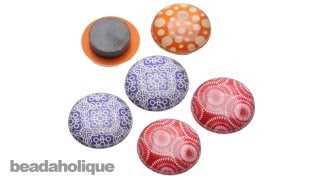
Writing a comedy novel can be a challenging but rewarding endeavor. Comedy is a genre that is loved by many, and if done well, it can make readers laugh out loud. However, it’s important to keep in mind that humor is subjective, and what one person finds funny, another may not. That’s why it’s crucial to understand the different elements and tropes of comedy and craft your story in a way that appeals to a wide range of readers.
Starting with the basics, one of the most important aspects of writing comedy is understanding your audience and their sense of humor. What may be funny to you may not necessarily be funny to everyone else. So, it’s essential to do your research and explore different sources of humor to find what works best for you.
When it comes to creating humor in your writing, there are many means to do so. You can use wordplay, puns, slapstick, irony, or even dark humor, depending on the tone and style of your story. The key is to find what’s most humorous to you and incorporate it into your writing in a way that feels natural and authentic.
Furthermore, it’s important to remember that comedy is not just about telling jokes. It’s about creating funny situations, witty dialogue, and humorous characters that will keep the reader entertained throughout the story. Don’t be afraid to take risks and think outside the box. The more original and unexpected your humor is, the more likely it is to leave a lasting impact on the reader.
Another important aspect of writing comedy is timing. Just like in stand-up comedy, the placement and delivery of a joke or a funny scene can make all the difference. Know when to drop a punchline or create a humorous situation to maximize its comedic effect. Sometimes, waiting and building anticipation can make a joke even funnier.
In addition to that, don’t forget about the power of observation. Many comedy writers find inspiration in everyday situations and the absurdities of life. Pay attention to what’s happening around you and turn those experiences into funny anecdotes or scenes in your writing. The more you observe and reflect on the world with an abstract and humorous perspective, the more material you’ll have to work with.
In conclusion, writing a comedy novel requires a combination of skills, including the ability to craft a compelling story, create relatable characters, and deliver humor in a way that keeps readers engaged. It’s important to love the genre and have a genuine passion for making people laugh. So, start writing, have fun, and don’t be afraid to experiment with different comedic elements. After all, laughter is the best medicine, and your comedy novel could be just what someone needs to brighten their day!
How to Write Humor
Writing humor can be a challenging craft, but it is also a rewarding one. Whether you love to make people laugh or just want to add a touch of humor to your writing, this post will cover the important elements of humor and how to incorporate them into your comedy novel.
1. Understand your audience: Comedy can be subjective, so it’s important to consider who will be reading your work. What may be funny to one person may not be funny to another. Think about the age, interests, and cultural background of your target readers.
2. Start with a funny idea: The key to writing humor is to start with a funny idea. This could be a humorous situation, a funny character, or even a unique twist on a common trope. If you can come up with a concept or scenario that will make readers laugh, you’re off to a good start.
3. Use humor elements: There are many different elements you can use to create humor in your writing. These include wordplay, puns, misdirection, irony, sarcasm, and absurdity. Experiment with different techniques to find what works best for your style and your audience.
4. Create layers of humor: A good joke often has multiple layers, with different levels of humor that can be appreciated by different readers. This can include wordplay in the dialogue, humorous descriptions, or even a funny subtext that may not be immediately obvious.
5. Keep it relatable: Humor is often most effective when it’s relatable to the reader. Look for common experiences, observations, or situations that people can connect with and find humor in.
6. Turn the unexpected: One way to create humor is to take something ordinary or expected and turn it on its head. This can involve using a clever twist, a surprising outcome, or a reversal of expectations.
7. Incorporate funny characters: Funny characters can provide a lot of comedic potential in your novel. Think about creating characters who have distinct personalities, quirks, or flaws that can be a source of humor.
8. Use dialogue effectively: Dialogue is a great tool for humor. Use witty banter, clever comebacks, or even a well-timed punchline to bring humor to your scenes.
9. Balance light and dark: Humor can be a great way to lighten the mood in a story, but be careful not to overdo it. Balance humor with more serious or emotional scenes to keep your story grounded and relatable.
10. Edit and revise: Writing humor is often a process of trial and error. Don’t be afraid to revise and edit your work to make it funnier. Pay attention to pacing, timing, and the placement of jokes.
Remember, humor is subjective, so what’s funny to one person may not be funny to another. Trust your instincts and don’t be discouraged if not every joke lands. With practice and persistence, you can develop your skills and create a comedy novel that will keep readers laughing.
Humour writing contains important elements of craft
Writing humor is no easy task. It’s a dark skill that not everyone possesses, and reading humor can be a difficult task. Writing humor without the proper craft can often result in jokes that fall flat or simply aren’t funny.
However, if you know how to write humor, the reader will find themselves laughing at almost anything you write. Whether it’s a funny scene, a humorous character, or even just a clever joke, the skill of crafting humor can turn an ordinary story into something extraordinary.
One of the most important elements of writing humor is the use of layers. Humorous stories often contain multiple layers of humor, depending on the reader’s perspective. This means that a joke could be funny on the surface, but there could be a deeper, more abstract joke hidden beneath. This adds complexity to the humor and keeps the reader engaged.
In addition to layers, humor often depends on the use of tropes and common comedy elements. Depending on the genre you’re writing in, you may need to use these tropes to your advantage. For example, in a romantic comedy, you may need to rely on certain romantic tropes to create humor. Understanding these tropes and how to twist them will help you create a funny and enjoyable story.
One of the key skills in humor writing is the ability to know when to hold back. Sometimes, the funniest jokes are the ones that aren’t said. This means that you need to know when to use restraint and when to let loose with a funny line. This balance can be difficult to achieve, but with practice, you can master the art of comedic timing.
Another important aspect of humor writing is understanding your audience. Not everyone has the same sense of humor, so it’s important to know who you’re writing for. This means considering factors such as age, gender, and cultural background. Tailoring your humor to your audience will make your jokes more relatable and increase the chances of them being funny.
So, if you’re looking to write a comedy novel, don’t wait! Start honing your humorous writing craft today. But remember, humor is subjective, and not everyone will love your jokes. That’s okay! Keep writing, keep experimenting, and keep having fun with your words. With practice and perseverance, you’ll find your own unique style of humor that will keep readers laughing.
Layers of humour
When it comes to writing a comedy novel, adding layers of humour to your stories is essential. Humour is what keeps readers entertained and coming back for more. But how do you craft a story that contains humorous elements without going overboard or risking falling flat? Here are some tips on how to master the art of humour in your writing:
- Start with the basics: Whether you’re writing a dark comedy or a lighthearted post, it’s important to have a solid understanding of what makes something funny. This means familiarizing yourself with various joke tropes, comedic genres, and sources of humour.
- Find your style: Not all humor is the same, and what one person finds funny, another might hate. Experiment with different styles of comedy to find the one that suits your writing voice best. Whether you’re into slapstick, satire, or clever wordplay, stick with what feels natural to you.
- Take it a step further: Once you have a good handle on the basics, don’t wait to start layering in more complex forms of humour. Abstract or absurd jokes, witty one-liners, or a touch of dark comedy can add depth and complexity to your story.
- Keep the reader guessing: No one likes predictable jokes. Mix things up by incorporating unexpected twists or turns into your punchlines and funny scenes. Surprise your readers with clever misdirection or subverting common comedic tropes.
- Balance is key: While layering in different types of humour is great, be careful not to overwhelm your readers. Too much comedy can become tiresome, so make sure to balance it with other elements of your story.
- Remember your audience: Consider who you’re writing for and what their sense of humour might be. This will help you tailor your jokes and comedic elements to resonate with your specific readership.
- Don’t forget the power of timing: Delivery is everything when it comes to comedy. Pay attention to the timing of your jokes and comedic scenes. A well-timed punchline can make all the difference between a good laugh and a flop.
- Start small: If you’re new to writing comedy, don’t feel pressured to create a masterpiece right away. Start with simple jokes and gradually build up your skills and confidence to tackle more complex forms of humour.
Writing comedy novels may seem difficult, but with practice and the right approach, you can turn your stories into something funny and memorable. So don’t wait – dive into the world of humour and start crafting your next hilarious masterpiece!
Dark comedy – wait no, turn the lights back on

In the genre of comedy writing, dark comedy stands out as a unique and intriguing style that combines humor with darker, often taboo, subjects. However, with dark comedy, it is important to strike a delicate balance between the humorous and the dark, as it can be a difficult style to master.
Writing dark comedy requires the skill of presenting funny elements in a way that is still enjoyable for the reader, without crossing the line into offensive or tasteless territory. It means finding the right mix of humor and dark themes, depending on the reader’s sensibilities and the subject matter being explored.
One of the key elements of dark comedy is the use of irony and sarcasm. This means that jokes are often abstract and require the reader to think and interpret the punchline in their own way. It’s a genre that can be polarizing, depending on the reader’s individual sense of humor.
Dark comedy often revolves around exploring taboo topics or making light of serious situations. It’s important to keep in mind that what may be funny to one person could be offensive to another. As a writer, you need to be aware of the potential reactions and be prepared to deal with them.
In writing dark comedy, it’s essential to love the craft of storytelling and to have a deep understanding of humor. It’s a genre that requires the ability to create multi-layered jokes that can be appreciated by different types of readers. This means embedding humor into the dialogue, character interactions, and even the description of the setting.
To start writing a dark comedy novel, you need a solid understanding of the genre and the tropes commonly associated with it. This will help you craft your own unique and funny take on dark subjects. It’s also important to find the right balance between the dark and the humorous, keeping in mind that too much of either can overshadow the other.
Depending on your writing skills, it may be difficult to find the right tone for a dark comedy. Don’t be afraid to experiment and try different approaches until you find the voice that works best for your story. Keep in mind that dark comedy doesn’t mean you have to hate or find humor in everything. It’s about finding humor even in the darkest of situations.
When writing a dark comedy novel, you’ll often need to blur the lines between what’s funny and what’s tragic. This can create a unique dynamic that keeps readers engaged and constantly questioning their own reactions. It’s a genre that challenges traditional storytelling and offers a fresh perspective on life’s complexities.
In conclusion, dark comedy is a genre that can be both entertaining and thought-provoking. It allows writers to explore taboo subjects and find humor in unexpected places. However, it’s important to be mindful of the potential reactions and ensure that humor is used in a way that is respectful and enjoyable for the reader. So go ahead, turn the lights back on and start writing your own dark comedy masterpiece!
Sources
When it comes to writing a comedy novel, finding the right sources can be a difficult task. Comedy often thrives in dark corners, and it could be challenging to pinpoint exactly what will make your writing funny. However, with the right skills and the right sources, you can light up the page with laughter.
One of the most important sources for comedy writing is the world around you. Finding humor in everyday life is a skill that every comedian or comedic writer needs to develop. Whether it’s a funny post you saw on social media or a hilarious scene you witnessed at the grocery store, take note of these moments and reflect them in your writing.
Another important source for comedy writing is the genre itself. Reading comedic novels, watching comedy shows, and studying the craft of comedy will help you understand the tropes and elements that make a story funny. By analyzing what works in these sources, you can better understand how to incorporate humor into your own writing.
Humor can be found in many forms, and it’s important to not limit yourself to just one type. Whether it’s slapstick comedy, witty banter, or dark humor, there’s no one right way to be funny. Experiment with different styles and find what resonates with your writing and your audience.
One of the biggest sources of comedy is the unexpected. Comedy often works by subverting expectations and taking the reader by surprise. What the reader thinks will happen next may turn into something completely different, creating a humorous moment. Be willing to take risks with your writing and explore different paths to keep your readers laughing.
While humor can often be found in the abstract, it’s also important to ground your jokes in something relatable. Connect with your readers by finding common experiences or situations that they can relate to and find humor in. By tapping into universal experiences, you can create jokes that resonate with a wide audience.
Another important source for comedy writing is self-awareness. Know your own writing style and what makes you laugh. By understanding your own brand of humor, you can infuse it into your writing. Don’t be afraid to make fun of yourself or include self-deprecating jokes. By showing your own vulnerability, you create a connection with your readers and invite them to laugh along with you.
In conclusion, there are many sources for comedy writing that you can explore. Keep an open mind and a keen eye for humor in the world around you. Experiment with different writing styles and make sure to tap into your own sense of humor. With the right sources and a little bit of practice, you’ll be on your way to writing a funny and engaging comedy novel.









